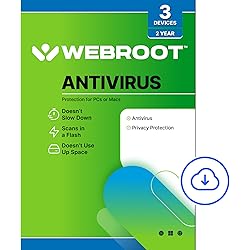Why Antivirus Is Part of Cybersecurity Basics
Cybersecurity basics start with antivirus protection because it serves as the first line of defense against a wide range of digital threats. As cyber attacks grow in frequency and sophistication, both individuals and businesses must make antivirus software a foundational component of their security strategy. In this article, we’ll examine exactly why antivirus is so crucial, how it works with other defenses, and practical steps to maximize your protection.
—
The Critical Role of Antivirus in Cybersecurity
Antivirus programs are designed to detect, block, and remove malware before it can cause harm. Malware—including viruses, ransomware, spyware, and trojans—remains the most common and accessible method for cybercriminals to compromise devices and steal sensitive data. Without robust antivirus solutions, your personal, financial, or business information is left vulnerable to attack.
How Antivirus Software Works
Most modern antivirus tools use a combination of signature-based detection, heuristic analysis, and behavioral monitoring:
– Signature-Based Detection: Compares files to a database of known malware signatures.
– Heuristic Analysis: Identifies suspicious patterns or behaviors that might indicate a new, unknown threat.
– Real-Time Protection: Scans files and actions as they happen, blocking malicious attempts instantly.
– Automatic Updates: Ensures the system is protected against the latest threats by updating malware databases regularly.
Combining these methods gives both consumers and small businesses robust, ongoing protection against evolving cyber threats.
—
Understanding the Scope of Cybersecurity Basics
Cybersecurity basics cover a wide spectrum of tools and habits that help protect systems and information, but antivirus remains fundamental.
Why Antivirus Matters for Home Users
Home computers are prime targets for malware and phishing scams. Whether you’re online shopping, banking, or using social networks, having antivirus in place means you’re better protected against:
– Financial fraud
– Identity theft
– Data loss from ransomware or destructive viruses
A single antivirus breach on a home system can have consequences ranging from lost files to drained bank accounts.
Small Businesses and Antivirus Protection
Small businesses are especially vulnerable to cyber attacks due to limited IT resources. Antivirus software helps prevent:
– Unauthorized access to business data
– Disruption from malware or ransomware attacks
– Damage to reputation if customer information is stolen
In addition to antivirus, businesses need policies and training, but a strong antivirus solution ensures basic protection for endpoints—laptops, desktops, servers, and even mobile devices.
—
Integrating Antivirus with a Broader Security Strategy
Antivirus is essential, but it’s only one piece of the cybersecurity puzzle. Cyber threats exploit weak points across technology and human behavior, so a comprehensive approach is required.
Multi-Layered Defense: Pairing Antivirus with Other Essentials
– Firewalls: Control the flow of data between devices and the internet, blocking unauthorized connections.
– Anti-Phishing Tools: Prevent users from falling for fake emails or websites designed to steal credentials.
– Regular Software Updates: Patch vulnerabilities that antivirus alone can’t address.
– User Education: Teach individuals and employees to recognize suspicious activity and avoid risky behavior.
Antivirus and Endpoint Protection Platforms (EPP)
Today’s advanced antivirus solutions commonly integrate with broader endpoint protection platforms. These EPPs provide:
– Advanced threat intelligence
– Device management
– Centralized monitoring and reporting
– Enhanced protection against zero-day threats
This evolution means antivirus is not static—it’s part of a dynamic, ever-evolving toolkit designed to stop both basic and advanced cyber attacks.
—
Common Misconceptions About Antivirus
“Antivirus Isn’t Needed if You’re Careful Online”
Even the most vigilant users can fall victim to sophisticated malware. Antivirus provides a safety net for unintentional mistakes or unknown vulnerabilities.
“Free Antivirus Is Enough”
Free antivirus often lacks the features, continuous updates, or customer support necessary for comprehensive protection—especially in business environments.
“Antivirus Slows Down My Computer”
Modern antivirus software is optimized for minimal impact on system performance, often running in the background undetected until a threat is found.
—
Best Practices: Maximizing Your Antivirus Protection
Regularly Update Antivirus Software
Threats change constantly. Always keep your antivirus up to date for the most effective protection.
Use Antivirus as Part of a Security Suite
Look for bundled solutions that cover additional threats, like phishing and ransomware, and integrate with firewalls or parental controls.
Schedule and Perform Regular Scans
Automate scans and run full system checks at least weekly, especially after major downloads or system changes.
Educate Yourself and Your Team
Learn to recognize phishing emails, suspicious attachments, and common malware tactics—antivirus works best when complemented by smart user behavior.
—
Frequently Asked Questions (FAQs)
Q1: Why is antivirus considered a cybersecurity fundamental?
A: Antivirus is essential because it detects and blocks malware, which is one of the most common cyber threats.
Q2: Can antivirus prevent all cyber attacks?
A: While antivirus protects against many threats, it should be used alongside other measures like firewalls, updates, and user education for complete security.
Q3: Is free antivirus software effective for businesses?
A: Free antivirus may offer basic protection, but businesses should invest in premium solutions for better security and support.
Q4: How often should I update my antivirus software?
A: Set antivirus software to update automatically, or check for updates at least once a day to stay protected against new threats.
Q5: Does antivirus slow down my computer?
A: Modern antivirus programs are designed to be lightweight and should have minimal impact on your system’s performance.
Q6: What devices need antivirus protection?
A: All internet-connected devices—including PCs, laptops, and smartphones—should have antivirus installed for optimal protection.
—
Conclusion and Key Takeaways
Antivirus remains an indispensable element of cybersecurity basics for homes and small businesses. While it is not a cure-all, it provides strong defenses against one of the most persistent dangers—malware—in the cyber landscape.
To stay secure, always keep your antivirus up to date, use it alongside firewalls and other tools, and educate everyone in your network about safe digital habits. Making antivirus foundational in your cybersecurity plan is a smart, practical step toward a safer digital experience.

